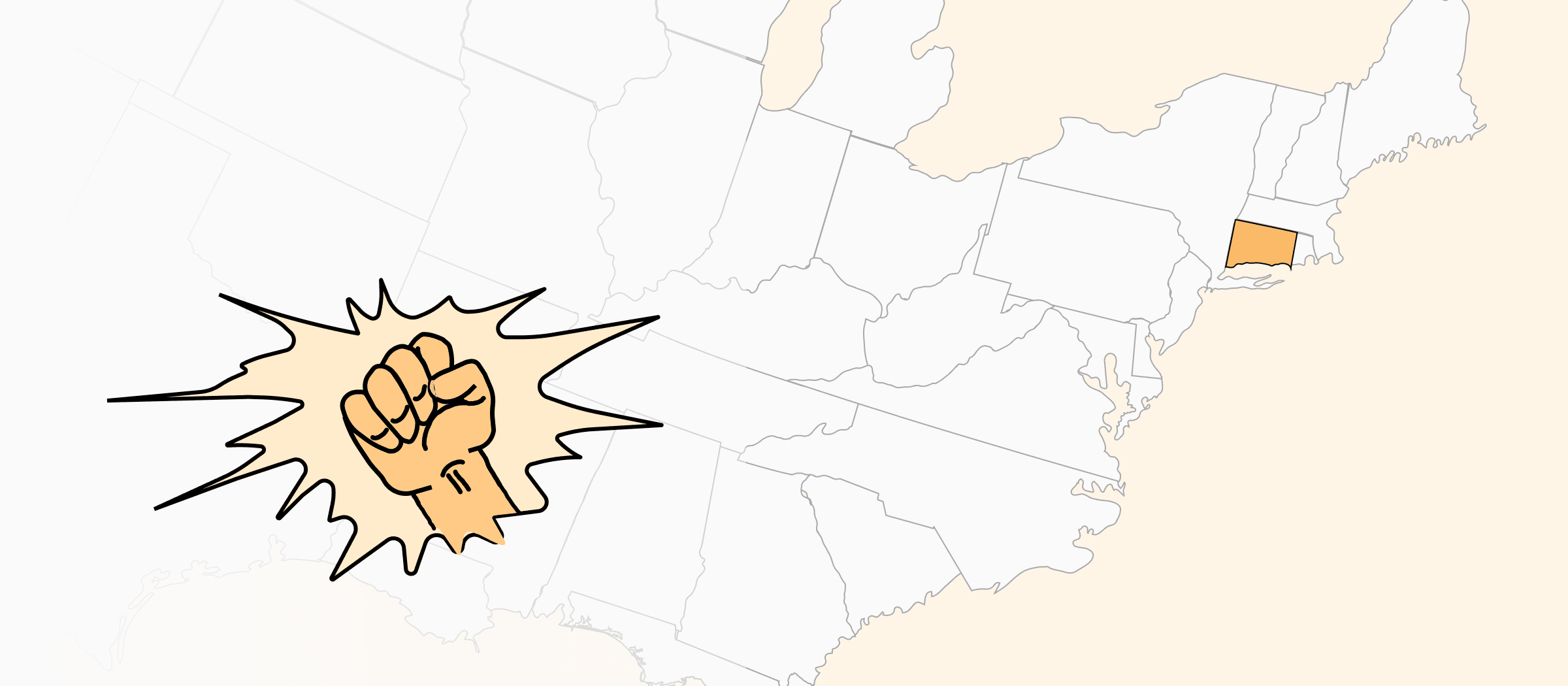| Tenant Protected Actions |
|
| Landlord Retaliatory Actions |
|
| Penalties for Retaliation |
|
When Is It Illegal for Landlords to Retaliate in Connecticut?
It’s illegal for Connecticut landlords to raise rent, reduce services, or evict when tenants have taken one of the following good-faith actions, within the past six months:
- Trying to remedy health and safety violations.
- Requesting repairs from the landlord.
- Suing the landlord for breach of rental duties.
- Participation in a tenant organization.
There are five specific exceptions permitting the landlord to raise rent, reduce services, or evict, when one of the following conditions applies:
- The tenant’s actions violated the law or the lease.
- The landlord immediately seeks, in good faith, to recover the premises for use as his personal residence.
- The tenant caused the condition that’s being complained about.
- The landlord’s notice to quit is proper notice ending a periodic tenancy.
- The landlord’s costs significantly increase, unrelated to the complaint (and at least four months prior), with the increased rent passing a fair portion of these costs to the tenant.
What Can Tenants Do in Response in Connecticut?
Connecticut tenants can allege retaliation mostly in context of a landlord’s lawsuit as a defense, rather than as an independent claim. If a court agrees with the tenant’s defense, it usually awards an injunction as well as monetary damages, then bans further retaliatory action and dismisses the lawsuit.
Sources
- 1 Conn. Gen. Stat. § 47a-20 (2021)
-
“A landlord shall not maintain an action or proceeding against a tenant to recover possession of a dwelling unit, demand an increase in rent from the tenant, or decrease the services to which the tenant has been entitled within six months after: (1) The tenant has in good faith attempted to remedy… any condition constituting a violation of any provisions of chapter 368o, or of chapter 412, or of any other state statute or regulation, or of the housing and health ordinances… (2) any municipal agency or official has filed a notice, complaint or order regarding such a violation; (3) the tenant has in good faith requested the landlord to make repairs; (4) the tenant has in good faith instituted an action under subsections (a) to (i), inclusive, of section 47a-14h; or (5) the tenant has organized or become a member of a tenants’ union.”
Source Link - 2 Conn. Gen. Stat. § 47a-20a (2021)
-
“…The landlord may maintain an action to recover possession of the dwelling unit if: [tenant is using premises for an unlawful purpose; landlord has a good-faith desire to recover the premises as his own personal residence; the tenant’s wilful actions caused the issue; or there’s a valid termination of a periodic tenancy]. …a landlord may increase the rent of a tenant if: [the tenant’s negligence caused the issue, or the landlord is proportionately passing on substantially increased costs not associated with the complaint that began at least four months before the complaint].”
Source Link - 3 Correa v. Ward, 91 Conn. App. 142, 147 (Conn. App. Ct. 2005)
-
“§ 47a-20a [defenses to claim of retaliatory eviction] clearly delineates only four exceptions enabling a landlord to rebut a presumption of retaliation under § 47a-20. Any ground not enumerated in § 47a-20a is therefore inadequate to rebut the presumption.”
Source Link

